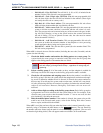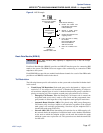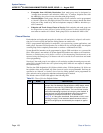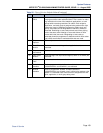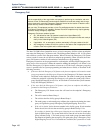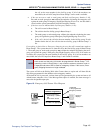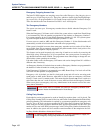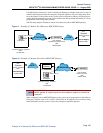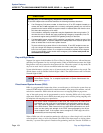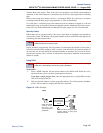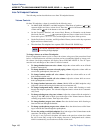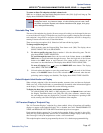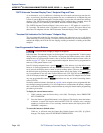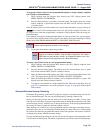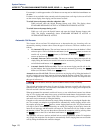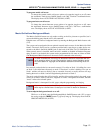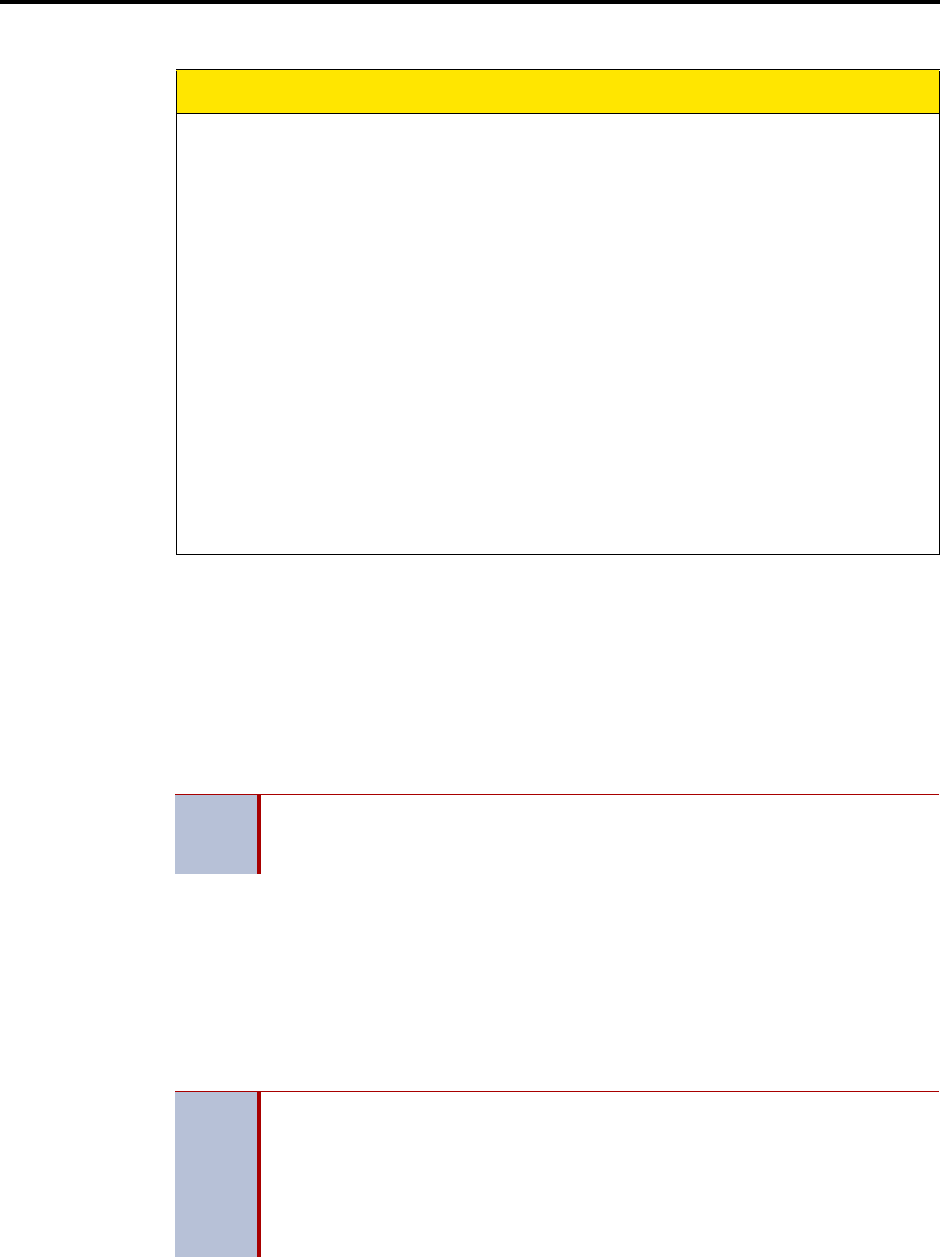
System Features
INTER-TEL
®
CS-5200/5400 ADMINISTRATOR GUIDE, ISSUE 1.1 – August 2005
Page 164 Day and Night Modes
Day and Night Modes
Separate lists appear in the database for Class of Service, Outgoing Access, Allowed Answer,
and Ring In assignments for day and night modes. When an Administrator enters the Night
Ring feature code, the system uses the night mode lists. When the system is in day mode, the
day lists are used. Active calls are not affected when the mode is changed.
System Administrators can place any or all remote nodes into night mode or day mode. The
default feature code for Enable Network Night is 9861. The default feature code for Disable
Network Night is 9862.
Direct Inward System Access (DISA)
DISA is a programmable feature that allows an outside party to dial into the system from an
external DTMF endpoint and then dial extension numbers, hunt group pilot numbers, and off-
node device extensions. DISA callers do not have access to outgoing trunks or page zones.
Any of the trunk groups can be programmed to receive incoming DISA calls in day and/or
night mode. When not in use for DISA, the trunk group can be used for placing outgoing calls
by endpoints with outgoing access permission.
When a DISA user calls an extension number, the call rings as a direct ring-in call, even if the
called endpoint is busy or in Do-Not-Disturb. The DISA caller hears music or ringing (deter-
mined by a system-wide option in Database Programming) until the Transfer Available or
CAUTION
Possible Delay in Local Emergency Response to Remote Sites.
IP and SIP endpoint users should be alerted to the following hazardous situations:
• If an Emergency Call phone number is dialed from an IP or SIP endpoint located at a
remote site that is not equipped with a correctly configured gateway, the call will be
placed from the location where the system chassis is installed rather than from the loca-
tion where the emergency call is made.
In this situation, emergency responders may be dispatched to the wrong location. To
minimize the risk of remote site users misdirecting emergency responders, Inter-Tel
recommends regular testing of MGCP/SIP gateway trunk(s) for dial tone.
• If uninterruptible power supply (UPS) protection has not been installed as part of the
Inter-Tel 5000 system, IP and SIP endpoints will not operate when electrical power fails
either at remote sites or at the main system location.
To place calls during a power failure in this situation, IP and SIP endpoint users can
only use a single line endpoint connected to one of the power failure bypass circuits
built-in to the system chassis. If an endpoint connected to a power failure bypass
circuit is not available, users should make emergency calls from a local phone not
connected to the system.
NOTE
The Night Ring On/Off feature code (9860) affects only the node on which the
Administrator resides. For a complete explanation of System Administrator fea-
tures, refer to page 23.
NOTE
Due to the natural characteristics of the trunk, the volume level of DTMF tones
transmitted over the trunk may be substantially reduced before reaching the sys-
tem. This natural degradation in tone volume may adversely affect the reliability
of the DISA feature. Other factors which can affect DISA performance are trunk
noise and the quality and strength of the DTMF tones generated by the off-pre-
mises endpoint itself. If the system cannot recognize a DTMF digit, the call is
automatically sent to the primary Attendant.



